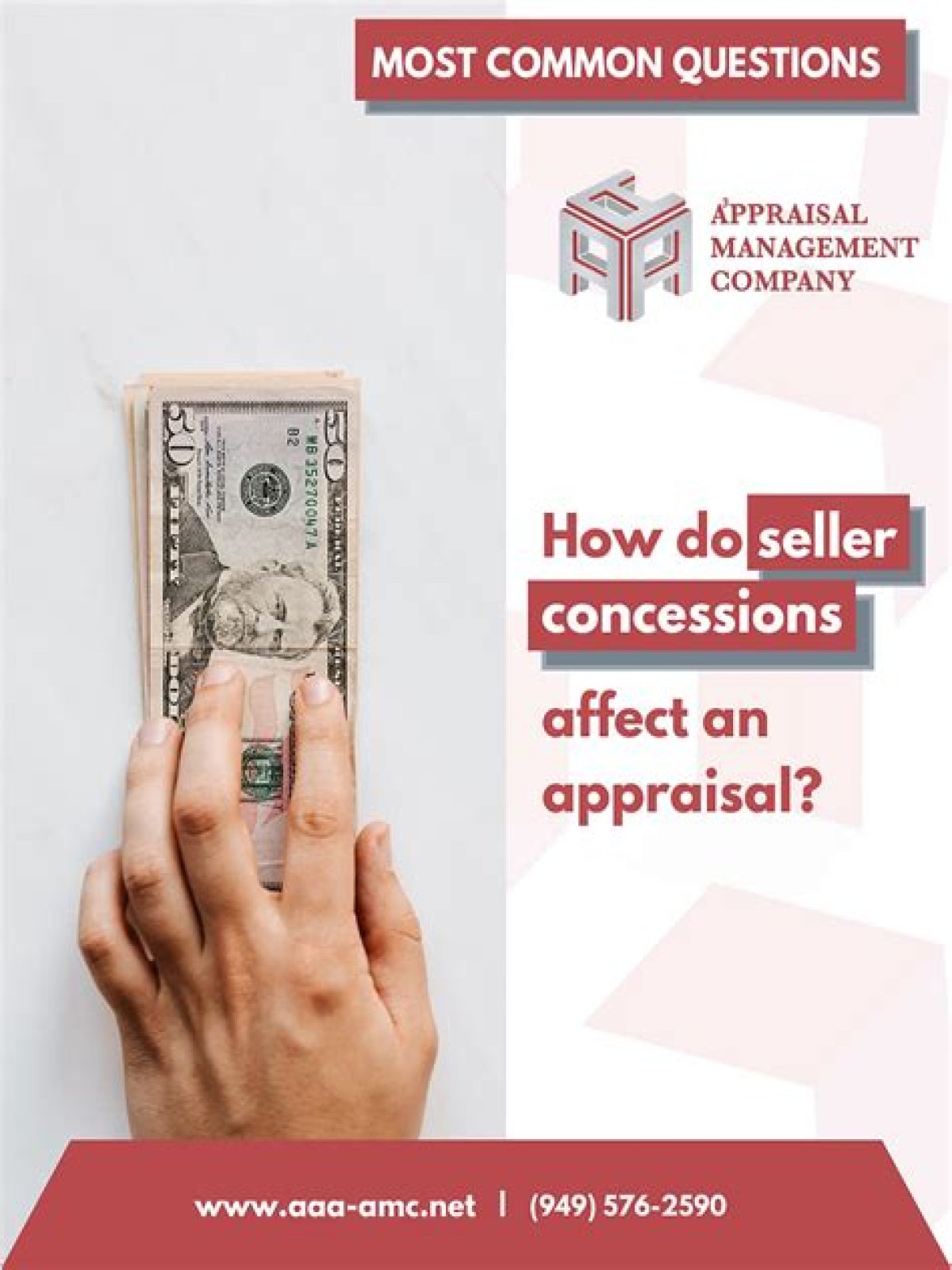Hereof, how does a seller's concession affect the seller?
A seller concession is a gift that a seller can offer a potential buyer to reduce the cost of buying a home. The money from the seller can then be put toward closing costs or homeowners association fees. Whatever it is, seller concessions can significantly lower the amount future homeowners have to pay out of pocket.
Subsequently, question is, do appraisers consider closing costs? Closing costs include all of the expenses and fees associated with buying a home. They may be charged by the lender or other third parties for services rendered. Appraisal fees: Charged by the appraiser to determine the value of the home, these fees are paid by the buyer, usually at closing.
Hereof, how are seller concessions paid?
It works like this: The buyer (or the buyer's agent) negotiates the concession amount with the seller or the seller's agent. Together, they agree on a sale price that includes the amount of the seller concessions. The concessions are then typically added on to the mortgage and used to pay closing costs.
What can seller concessions be used for?
A seller's concession is an amount of money paid toward closing on your behalf. Generally, this money is used to pay for closing costs, but sellers occasionally concede money if they realize their carpets are gross and need to be replaced or that their garage needs repairs they don't really want to make.
How do you ask for seller concessions?
What is the maximum seller concession on a conventional loan?
What is a seller credit at closing?
How does seller paid closing cost work?
How much can a seller contribute to closing costs?
What are concessions in a real estate transaction?
How do sellers pay for repairs?
Are seller concessions tax deductible?
Are seller concessions based on purchase price or loan amount?
How much seller assist can I ask for?
SELLER ASSIST LIMITS.
| LOAN TYPE | MAX ASSIST |
|---|---|
| FHA | 6% |
| Conventional – 3% To 9% Down | 3% |
| Conventional – 10% Or More Down | 6% |
| Investor Loan | 2% |
